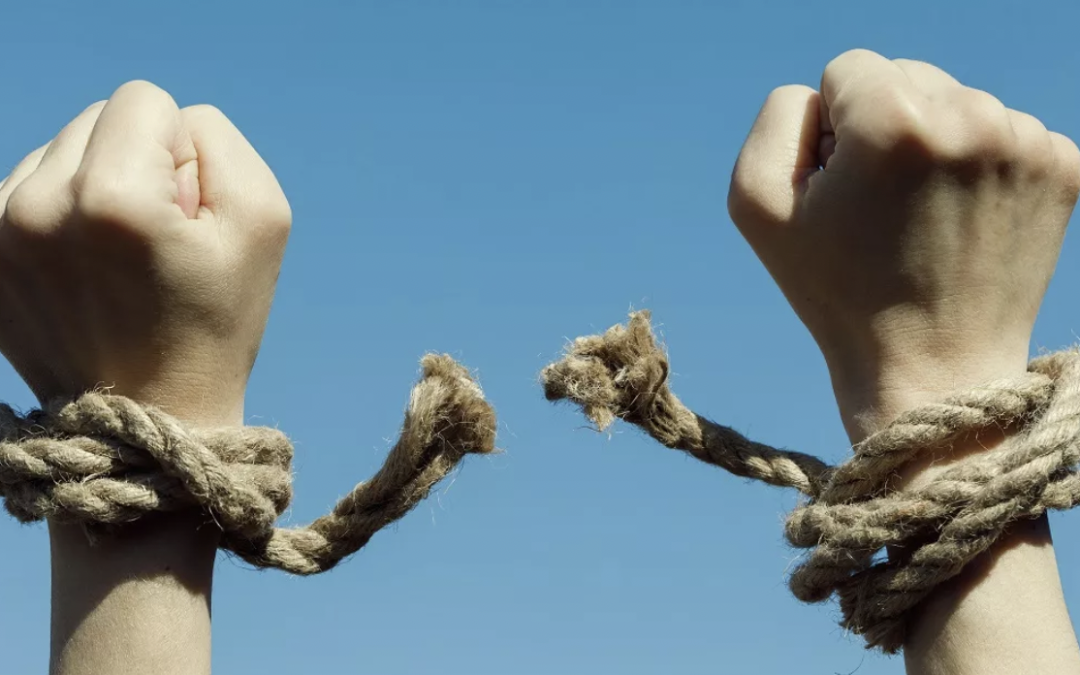In 1984 London Life Insurance Company launched a self-serving advertising campaign to encourage Canadians to invest in their retirement plans. The idea was simple: invest with us and you too can enjoy the fictional retirement freedom at the age of 55 just like those very happy people in the commercials. And just like that, their slogan, “Freedom 55” made its way into Canadian lore, joining the ranks of “Just Do It”, “Got Milk?” and “Where’s the Beef”. In fact, it was so successful, that the campaign ran for 25 years and London Life rebranded their financial security department as Freedom 55 Financial.
Today, of course, Freedom 55 is nothing more than a pipe dream, but a dream it remains. Everyone longs for freedom, for that ineffable ideal that holds the promise of freedom from the yokes of everyday life: mortgages, taxes, bosses, toxic relationships, exams, tests, routines… The list can go on and will change for each person. While we instinctively know what freedom is, we are hard pressed to really define it. The definition ranges from “the state of not having or being affected by something unpleasant or unwanted” to “the power or right to act, speak or think as one wants without hindrance or restraint”, and everything in between. But as a wise man once said, “The man who is slave to the compass has the freedom of the seas” (anonymous).
Parashat Bo tells the story of our momentous Exodus from Egypt, following the last of the three plagues, locusts, darkness and the death of the first born. Each time, with a request from Moshe who pleads with Pharaoh on G-d’s behalf to release Bnei Israel, “Let my people go that they may serve Me.” Finally, a broken down Pharaoh tells Moshe to take his people and leave. It is the climactic moment of the Egypt narrative. Bnei Israel are about to become free yet the text moves from the narrative of the exodus to almost a legal text, with barely any ink dedicated to the drama of the departure. Did the people leave the land of their oppression to trade one task master for another?
In a recent dvar Torah, Rabbi D. Lerea reminds us that upon leaving Egypt, the people are weak, broken down and have no experience of thinking for themselves. They are without direction or vision. Running away from Egypt out into the wilderness would not gain them true freedom. There are two types of freedoms: “freedom from”, or negative freedom, which is “the absence of obstacles or constraints to one’s own action”, and “freedom to”, or positive freedom, which is “the possibility to autonomously determine and achieve individual or collective purposes” (Berlin 1969). “We are given a handbook and a system of mitzvoth that guide our actions, how we speak, how we eat, how we interact, how we behave, how we conduct business, how we grow up, and how we live. (…) Freedom is not simply to wander around aimlessly in the wilderness. Our freedom is freedom with purpose. We are blessed to have direction” (Lerner 2011).
Freedom is a blessing given to us from G-d. We have freedom of choice, to choose between right or wrong. We must make that free will part of our day-to-day lives and appreciate it on the intellectual and spiritual level (Rav Soleveitchik z”l). Liberty, writes Rabbi Lord Jonathan Sacks z”l is “freedom of the mind, not just the body”.
A sailor at sea with no direction is adrift and at the mercy of all that surrounds him. Give him a compass and he becomes master of his journey, free to navigate the waters safely and securely and follow his heart’s desires. So too are we free to make our way in this world and enjoy real freedom, at any age, when we embrace the compass of life that is our Torah. Each and every day, and at each and every age, we are blessed with the freedom to change, to make choices. The Exodus was the first step towards our real, positive freedom. It is when we embrace the framework which we were given in which to effect those changes that we are truly free.
Shabbat Shalom,
Dr. Laura Segall
Head of SchoolParas

